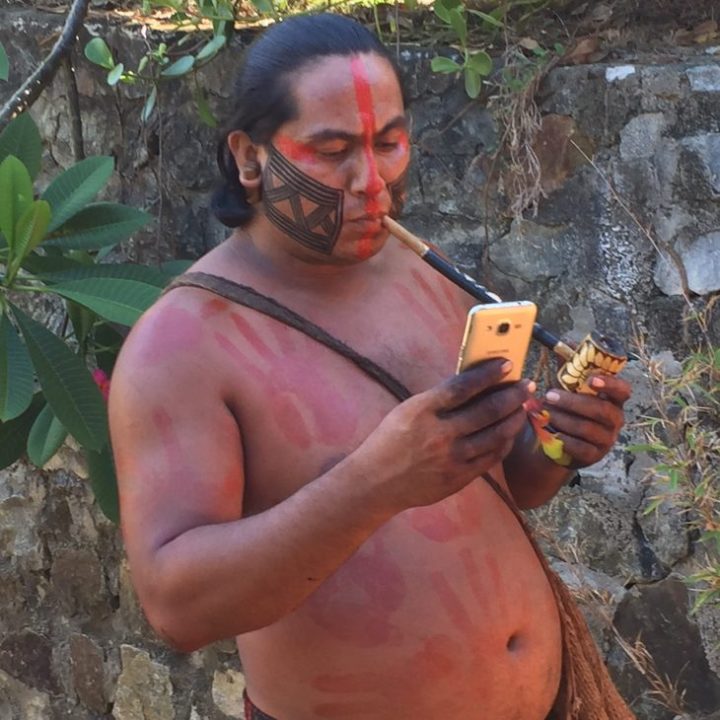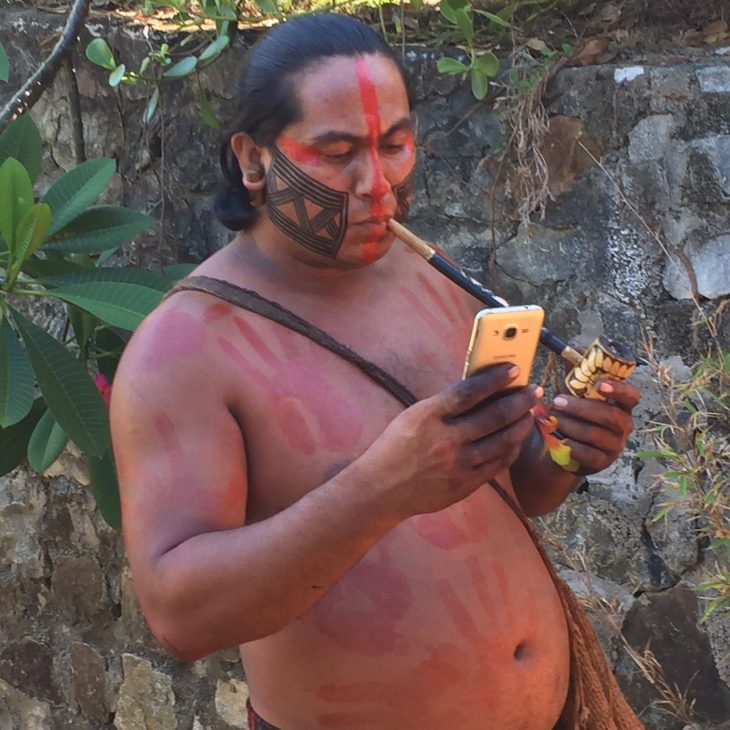We are in Imbassai in the state of Bahia. It’s lush, beautiful and green. I am escaping the London winter gloom. For Fixyá of the Fulni-ô tribe, covered in body paint, he is escaping a desertified region in Pernambuco state. He lives by a town called Aguas Bellas (Beautiful Water) which is ironic as there isn’t any. We are here for the Encontro Multietnico, organised by Juliano Basso, where representatives of several different Brazilian indigenous groups, nearly all from the Amazon, can ‘get together, exchange information, bond and have fun’. You certainly bond with people in a three-hour sweat lodge session, even if I wouldn’t call it fun exactly.
Tangara Mirim, where this jamboree took place was intended to be a stables – a retired millionaire built them as his dream project but promptly expired, and the horses never came. The enterprising Glaucia Rodrigues bought the place and is putting on events, like this one, followed by a global music festival.
When asked, I say I am from Stoke Newington in London: a white tribe stereotyped unfairly by outsiders for their beards, fixed-gear bicycles and complex mating rituals over flat-white coffees, surrounded by Hassidic and other tribes, who we more or less get on with.

Britain’s best politics newsletters
You get two free articles each week when you sign up to The Spectator’s emails.
Already a subscriber? Log in








Comments
Join the debate for just £1 a month
Be part of the conversation with other Spectator readers by getting your first three months for £3.
UNLOCK ACCESS Just £1 a monthAlready a subscriber? Log in